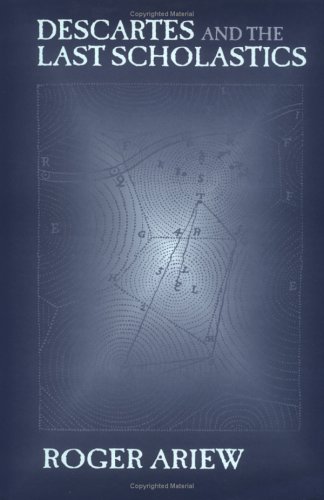The renaissance in Descarte studies has been characterized by an attempt to understand the philosopher's texts against his own intellectual background. Roger Ariew here argues that Cartesian philosophy should be regarded as it was in Descartes' own day - as a reaction against, as well as an indebtedness to, scholastic philosophy. His book seeks to illuminate Cartesian philosophy by analyzing debates between Descartes and contemporary schoolmen and surveying controversies arising in its first reception. The volume touches upon many topics and themes shared by Cartesian and late scholastic philosophy: matter and form; infinity, place, time, void and motion; the substance of the heavens; the object or subject of metaphysics; principles of metaphysics (being and ideas) and transcendentals (for example, unity, quantity, principle of individuation, truth and falsity). Part I exhibits the differences and similarities among the doctrines of Descartes and those of Jesuits and other scholastics in 17th-century France.
The contrasts Descartes drew between his philosophy and that of others are the subject of Part II, which also examines some arguments in which he was involved and details the continued controversy caused by Cartesianism in the second half of the 17th century.
- ISBN10 0801436036
- ISBN13 9780801436031
- Publish Date 1 July 1999
- Publish Status Out of Stock
- Out of Print 16 January 2009
- Publish Country US
- Imprint Cornell University Press
- Format Hardcover
- Pages 230
- Language English
